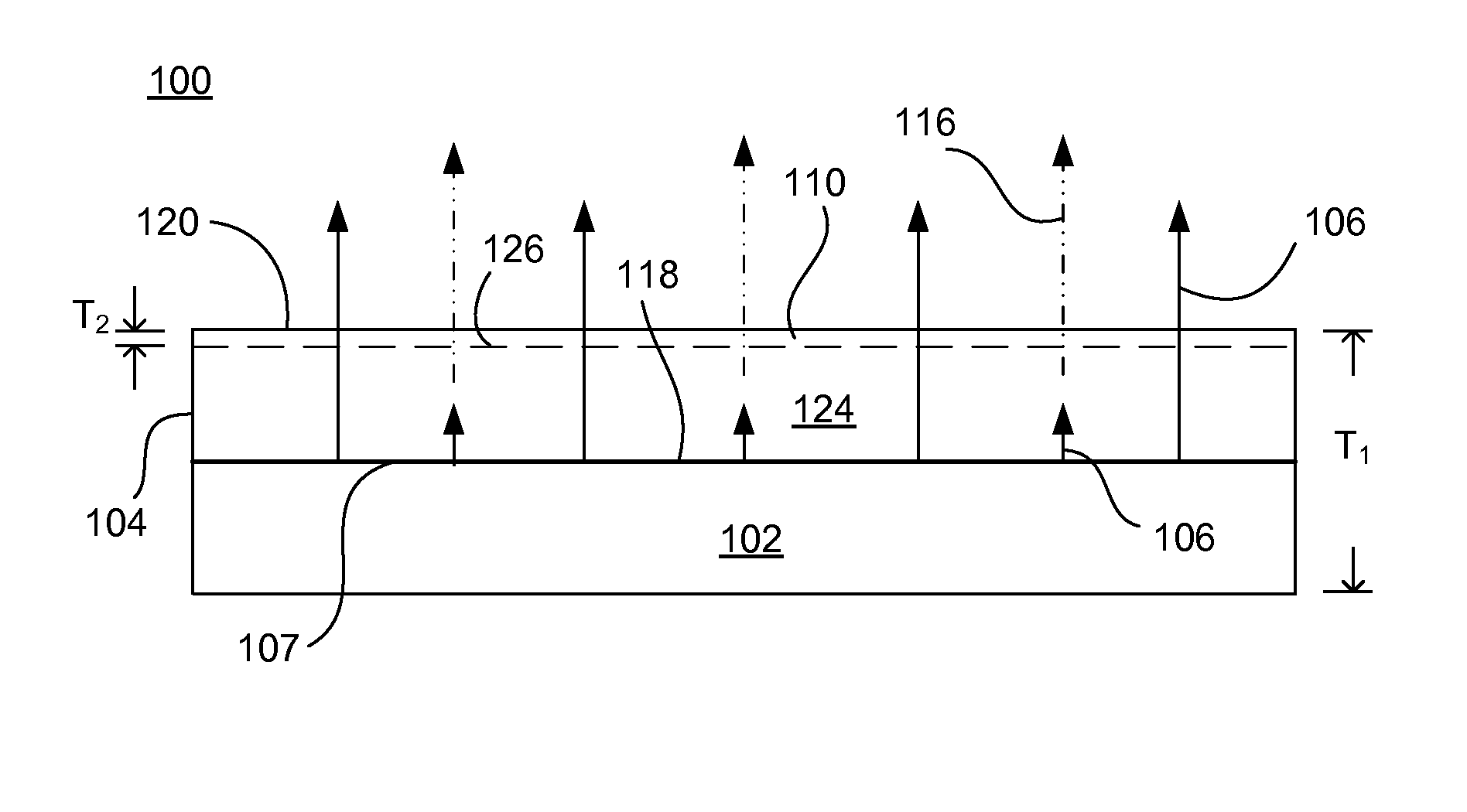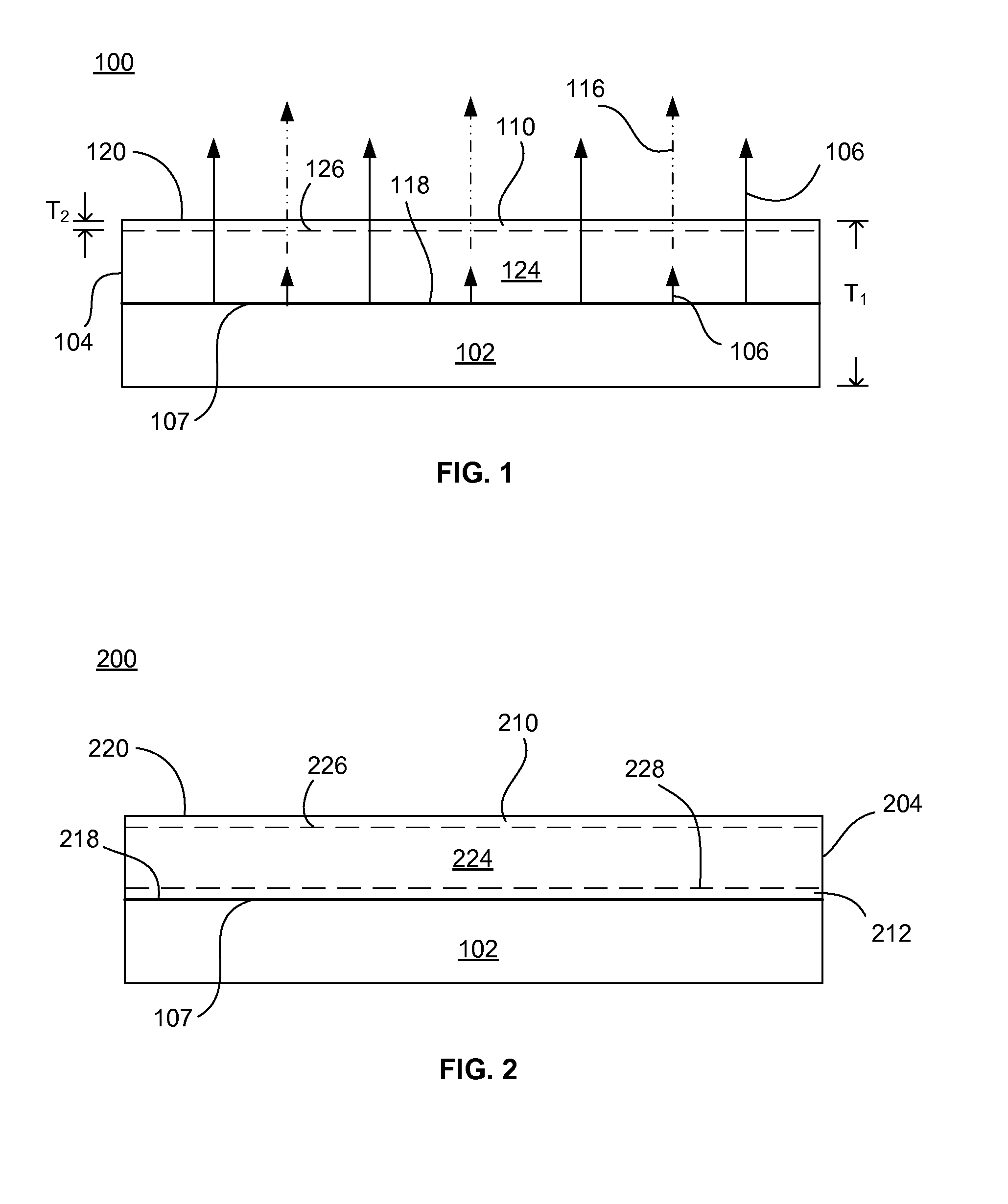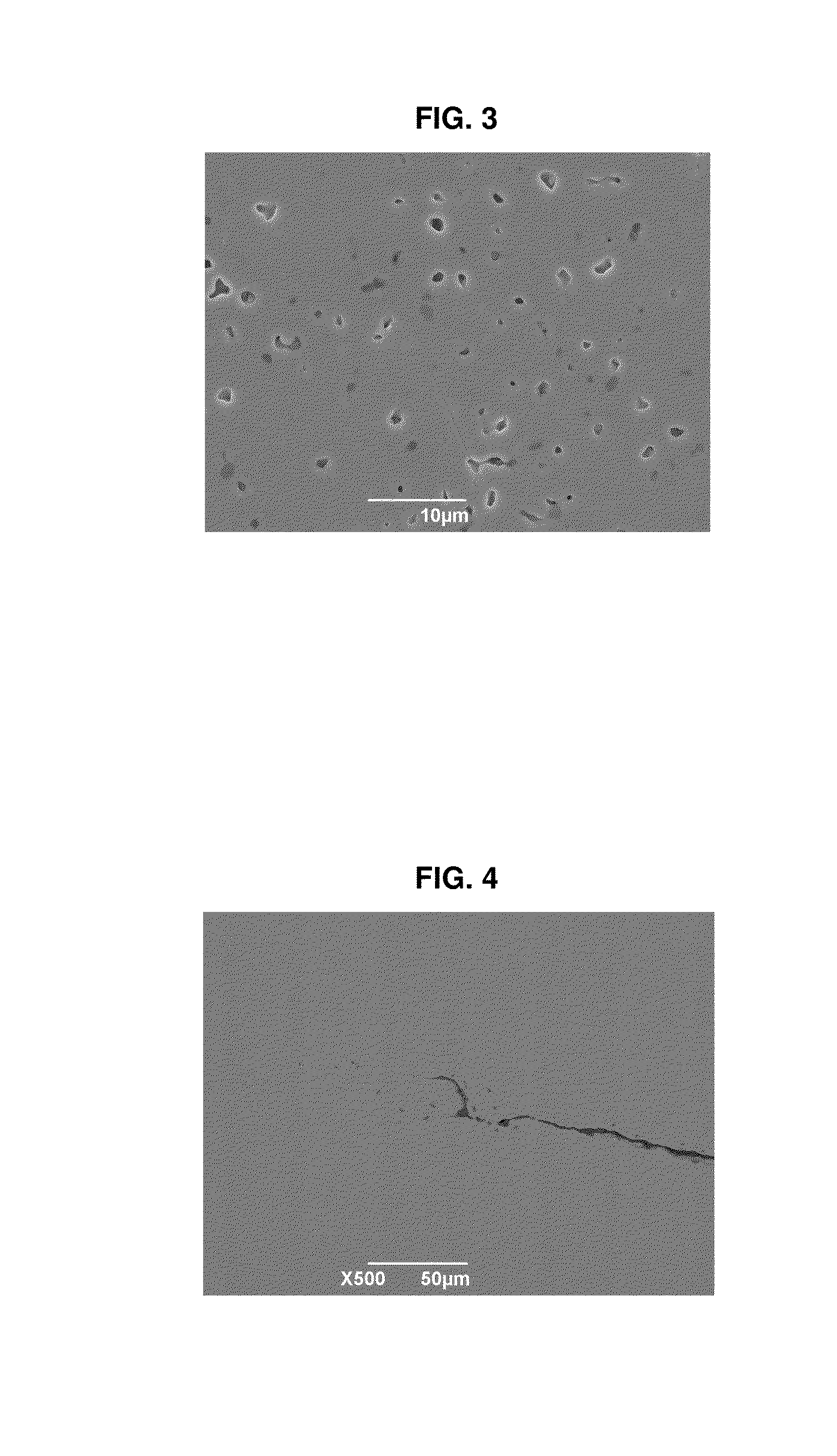Wavelength converter and light-emitting device having same
a technology of wavelength converter and light-emitting device, which is applied in the direction of discharge tube/lamp details, spectral modifiers, light sources, etc., can solve the problems of limiting the efficacy of light sources, and achieve the effects of improving light extraction, high conversion efficiency of transparent ceramics, and increasing lumen outpu
- Summary
- Abstract
- Description
- Claims
- Application Information
AI Technical Summary
Benefits of technology
Problems solved by technology
Method used
Image
Examples
examples
[0030]A typical batch formulation for a YGdAG:Ce-based sintered ceramic wavelength converter uses 0.5 g of TEOS per 100 g of YGdAG:Ce powder yielding about 0.145 weight percent (wt.%) SiO2 in the YGdAG:Ce ceramic. Significant variations in the levels of cerium and gadolinium may be utilized to make a variety of colors and amount of conversion with a given ceramic converter thickness. In particular, gadolinium content can range from 0 to 50 percent of the yttrium content and more preferably from 10 to 20 percent. Cerium content can range from 0.05 to 5 percent of the yttrium content and more preferably from 0.1 to 1 percent.
[0031]The ceramic wavelength converters may also be made from a mixture of the individual oxides instead of pre-reacted YGdAG:Ce powders. For example, a batch containing only a mixture of yttria, alumina, and ceria (with or without gadolinium oxide), and TEOS is processed into ceramic plates. The batch is milled for a length of time long enough to promote a good g...
PUM
| Property | Measurement | Unit |
|---|---|---|
| thickness | aaaaa | aaaaa |
| thickness | aaaaa | aaaaa |
| thickness | aaaaa | aaaaa |
Abstract
Description
Claims
Application Information
 Login to View More
Login to View More - R&D
- Intellectual Property
- Life Sciences
- Materials
- Tech Scout
- Unparalleled Data Quality
- Higher Quality Content
- 60% Fewer Hallucinations
Browse by: Latest US Patents, China's latest patents, Technical Efficacy Thesaurus, Application Domain, Technology Topic, Popular Technical Reports.
© 2025 PatSnap. All rights reserved.Legal|Privacy policy|Modern Slavery Act Transparency Statement|Sitemap|About US| Contact US: help@patsnap.com



